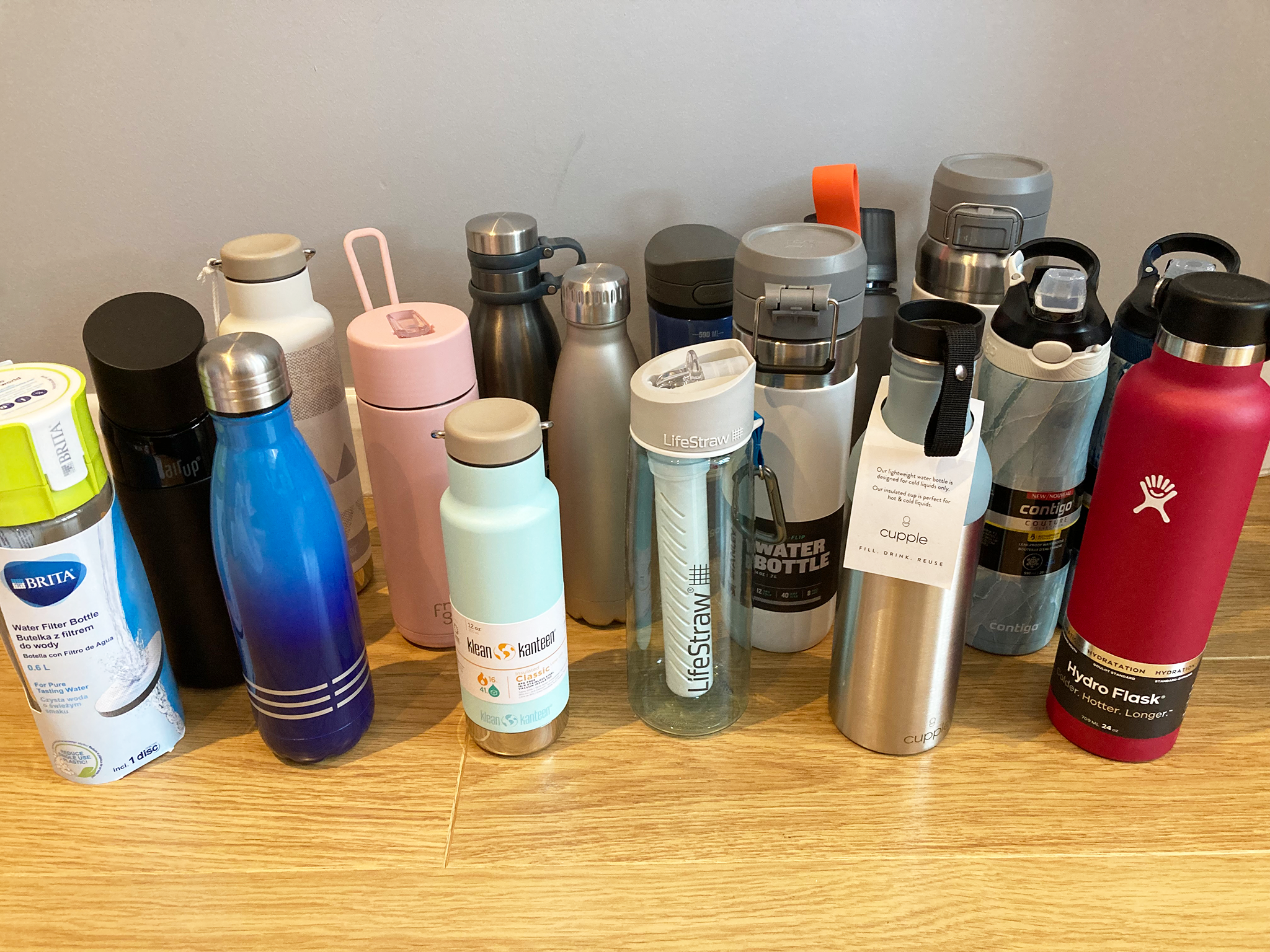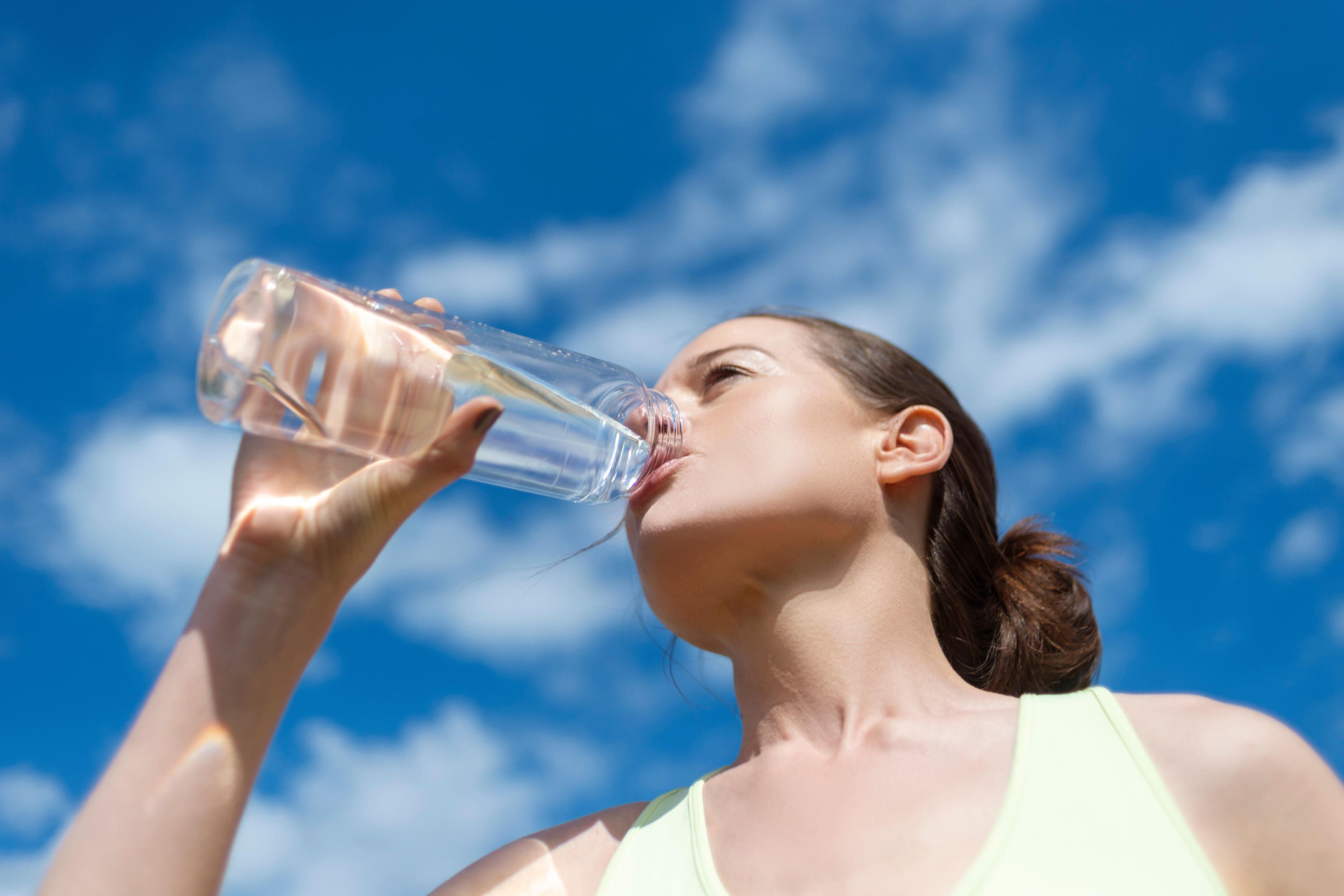Here’s what happens if you don’t wash your water bottle often enough
Every time you drink you’re transferring bacteria from your mouth, which can then multiply in the container
Helping keep you hydrated, reusable water bottles also cut down on single-use plastic, and save you money every time you refill instead of buying a new bottle of water.
Trying to hit the NHS-recommended eight glasses of water a day for adults is an excellent idea, of course, but did you know there’s one way your refillable bottle could potentially be detrimental to your health?
According to a study from waterfilterguru.com, reusable water bottles contain an average of 20.8m colony-forming units (CFUs) of bacteria, which equates to 40,000 times more than the microbes on a toilet seat.

So what might be the consequences if you continuously sip and refill without washing your bottle properly between uses?
“A common misconception when it comes to reusable water bottle hygiene is that as you’re typically filling it with pure water and it’s only coming into contact with your own mouth, there’s little need to clean it often,” says Dr Donald Grant, senior clinician at The Independent Pharmacy.
However, every time you drink from the bottle, you’re transferring bacteria from your mouth, which can then multiply in the container.
“Anything that is reusable can be prone to accumulating dirt, dust or debris and, as a result, bacteria,” says private GP Dr Suhail Hussain.
“This is exacerbated by the fact water bottles are the ideal environment for harbouring bacteria due to being moist.”

Hard to reach crevices – for example, inside a screw top or under a flip-up straw – could also develop mould, and then there’s contamination from other sources.
“When you store it in a gym bag, for instance, it can pick up bacteria from the interior of the bag or anything else stored in it, while you can also transfer bacteria from your hands to your bottle,” says Grant.
“If your bottle has a valve cap, you may need to lift or twist it with your fingers, and this can transfer bacteria you may have picked up from touching other objects or surfaces.”
What bacteria is found in bottles?
“These might be simple commensals such as streptococcus and staphylococcus, which normally live in symbiosis with their host (i.e. us) but can become problematic if they accumulate, or the individual is under the weather,” Hussain says.“Bacteria such as E. coli – a common cause of urine and bowel infections – can often colonise the water bottle following repeated handling, such as taking the cap on and off.”
These bacteria can potentially cause a variety of issues. “You may become sick and develop gastric illness, such as diarrhoea or vomiting,” Hussain continues. “Gram negative rods – another common bacterium found in unwashed bottles – can lead to urogenital tract infections and pneumonia.”
Grant warns: “If there’s a build-up of mould inside the bottle, this can cause allergy symptoms, such as a runny nose, sneezing, or red and itchy eyes. Symptoms might be more severe for someone with asthma.”
How often should you wash your reusable water bottle?
“To minimise your risk of getting sick, you should ideally clean your water bottle after each use,” Grant says. “As a minimum, you should aim to wash it thoroughly at least a few times a week.”
Hot water and washing up liquid are all you need to banish bacteria on the daily.
“Fill the bottle with hot soapy mixture and swill around, or leave to soak in a detergent mixture,” Hussain advises. “Remember to pay special attention to lids/caps and screw top regions – use a clean brush [to scrub them].”
If you’ve neglected your bottle for a few days and it needs a deeper clean, Grant suggests: “Soak your bottle overnight in a solution of half vinegar and half water. Rinse the bottle and let it dry fully before using it again.”
Storage is also important to help minimise nasty microbes.
“Where possible, you should keep your water bottle out of germ-rich environments such as your gym locker or sports bag,” Grant says. “You should also avoid filling your bottle with anything other than water, such as protein shakes, energy drinks, or sugar-rich liquids, as sugar can stimulate the growth of bacteria.”
Hussain adds: “Don’t leave water bottle in the sun for long periods of time or siting in the cup holder in the car – the mixture of warmth and moisture is likely to make bacterial overgrowth worse.”
Bookmark popover
Removed from bookmarks